Description: Television series i like. Its a long list in no particular order. Some shows may sadly have no links yet, but keep checking because they are added every day.
Creator: cyberfox
Posted: 4 years ago
|
|
Favorite
40 favorites
25651 views
|
|
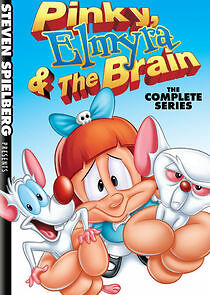
info
|
TV Show:
Pinky, Elmyra & The Brain
( 1998 )
Pinky and the Brain, those two genetically engineered lab mice, are homeless now that Acme Labs is no more. And the mice are in need of a place to hide as a secret organization wants to apprehend Brain. While hiding in a pet shop, the mice wound up getting bought by Elmyra Duff. Now the mice are forced to operate from Elmyra's house and endure her twisted ways of caring for animals. Despite all of these new complications, Pinky and the Brain still continue to try to take over the world.
|
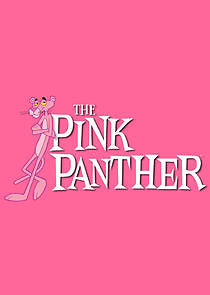
info
|
TV Show:
The Pink Panther Show
( 1964 )
The Pink Panther Cartoon Collection contains the threatrical Pink Panther shorts as well as other cartoons such as 'The Inspector' and 'The Ant and the Aardvark'. This whole thing began in 1963, when Blake Edwards needed an opening sequence for his film, The Pink Panther, so he commissioned David H. DePatie and Warner Brothers cartoon director, Friz Freleng to make one for it. The opening sequence turned out to be more popular than the movie itself, so United Artist commissioned DePatie-Freleng Enterprises to make Pink Panther cartoons for theaters. In 1969, due to the success of the cartoon, NBC started airing The Pink Panther Show along with another DFE theatrical cartoon... The Inspector It was based on the Inspector Clouseau character. The Inspector was a clumsy French detective who bumbles everything up.
|
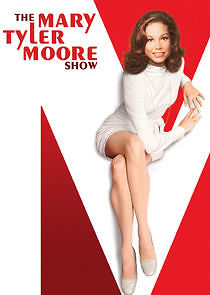
info
|
TV Show:
The Mary Tyler Moore Show
( 1970 )
The Mary Tyler Moore Show was one of the most literate, realistic, and enduring situation comedies of the 1970s. Mary Richards was the idealized single career woman. She had come to Minneapolis after breaking up with a man she had been dating for four years. Ambitious, and looking for new friends, she moved into an older apartment building and went to work as an assistant producer of the local news show on television station WJM-TV. In her early 30s, Mary symbolized the independent woman of the 1970s.
|
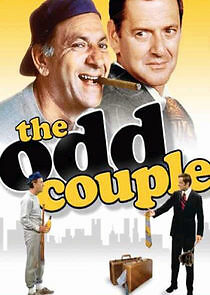
info
|
TV Show:
The Odd Couple
( 1970 )
Can two divorced men share an apartment without driving each other crazy? This TV adaptation of Neil Simon's classic play deserves its place among the best-known and funniest sitcoms of the 1970s.
|
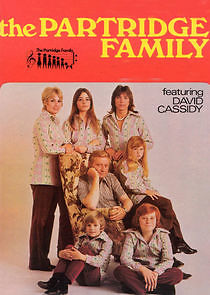
info
|
TV Show:
The Partridge Family
( 1970 )
It's TV's favorite family of rock 'n 'rollers, who hit the road in their groovy bus and turn the world on to the catchy pop songs such as "I Think I Love You", "I Woke Up In Love This Morning", and "Somebody Wants to Love You". The Partridge Family's six members feature mom Shirley and her five kids: Keith, Laurie, Danny, Tracy and Chris. And who can forget the Partridge's frequently exasperated manager Reuben Kincaid, who would become an important member of their family whether he liked it or not?
|
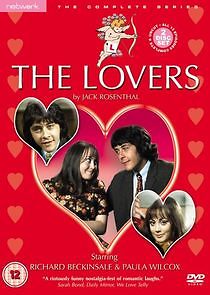
info
|
TV Show:
The Lovers
( 1970 )
The Lovers is a British television sitcom by Jack Rosenthal, starring Richard Beckinsale and Paula Wilcox as a courting couple, Geoffrey and Beryl. It was made between 1970 and 1971 by Granada Television for the ITV network.
|
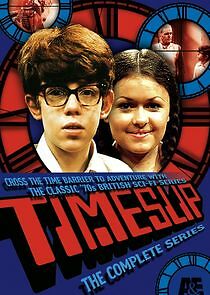
info
|
TV Show:
Timeslip
( 1970 )
Three children have vanished from the tiny Midlands village of St Oswald. First to disappear is local girl Sarah, then Simon Randall and Liz Skinner, who are on holiday with Liz's parents. Only Commander Traynor, an apparent stranger to the area, can offer some idea of where they are and that idea is so incredible and horrifying that the Skinners cannot believe it...
|
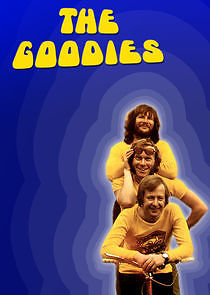
info
|
TV Show:
The Goodies
( 1970 )
This British version of The Monkees features three madcap comedians--Tim Brooke-Taylor, Graeme Gordon, and Bill Oddie--who would do "Anything, Anytime, Anywhere" to make money.
|
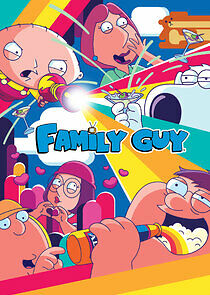
info
|
TV Show:
Family Guy
( 1999 )
Family Guy follows Peter Griffin the endearingly ignorant dad, and his hilariously offbeat family of middle-class New Englanders in Quahog, RI. Lois is Peter's wife, a stay-at-home mom with no patience for her family's antics. Then there are their kids: 18-year-old Meg is an outcast at school and the Griffin family punching bag; 13-year-old Chris is a socially awkward teen who doesn't have a clue about the opposite sex; and one-year-old Stewie is a diabolically clever baby whose burgeoning sexuality is very much a work in progress. Rounding out the Griffin household is Brian the family dog and a ladies' man who is one step away from AA.
|
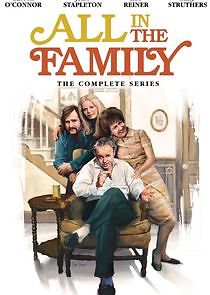
info
|
TV Show:
All in the Family
( 1971 )
All in the Family centered around the Bunker family who lived in a home located at 704 Houser Street in Queens, New York. Archie Bunker was the main character, and what a character he was. He was televisons most famous bigot, crass and down right rude. Yet he was loveable, with a soft side just beneath the surface. Edith Bunker was his somewhat dizzy wife whom he called "Dingbat". Edith put up with Archie and had qualities about her that made her one of television's most unforgetable characters. Also living in the Bunker household were Archie and Edith's daughter, Gloria, and her husband Mike, or "Meathead".
|
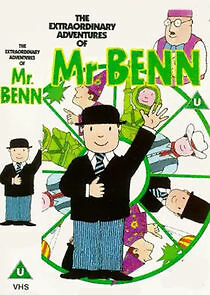
info
|
TV Show:
Mr. Benn
( 1971 )
Mr. Benn is a character created by David McKee who appears in several children's books, and an animated television series of the same name originally transmitted by the BBC in 1971 and 1972. McKee wrote and animated (with Ian Lawless) thirteen Mr. Benn episodes for the BBC in the early 1970s. These episodes were repeated many times over the years, and many people retain fond memories of him. The episodes were narrated by Ray Brooks. The music is credited as composed by Don Warren, which was a pseudonym for Duncan Lamont.
|
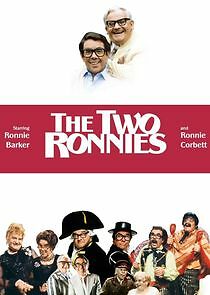
info
|
TV Show:
The Two Ronnies
( 1971 )
Long running BBC comedy show consisting of sketches and humourous musical routines involving the large Ronnie Barker and the small Ronnie Corbett.Most sketches involved both men, but occasionally only the one. Barker was excellent at fast talking and complicated dialog. Each week Corbett would tell a short joke and in doing so he'd digress and tell a dozen or more unrelated jokes on his way to the main punch line. Each series contained a mini comedy series as well as characters that'd return weekly. Also on the bill would be a musical piece from a well known singer/group.
|
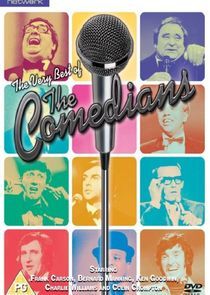
info
|
TV Show:
The Comedians
( 1971 )
"The Comedians" is a British television stand-up comedy show that ran from 12 June 1971 – 23 July 1992.It gave a stage to nightclub and working men's club comedians of the era.Regular comedians that appeared included Russ Abbot, Lennie Bennett, Stan Boardman, Jim Bowen, Jimmy Bright, Duggie Brown, Mike Burton, Dave Butler, Brian Carroll, Frank Carson, Mike Coyne, Jimmy Cricket, Colin Crompton, Pauline Daniels, Charlie Daze, Vince Earl, Steve Faye, Eddie Flanagan, Stu Francis, Ken Goodwin, Jackie Hamilton, Jerry Harris, George King, Bobby Knutt, Bernard Manning, Mike McCabe, Paul Melba, Mick Miller, Hal Nolan, Tom O'Connor, Tom Pepper, Bryn Phillips, Mike Reid, George Roper, Harry Scott, Sammy Thomas, Johnny Wager, Roy Walker, Charlie Williams, Lee Wilson and Lenny Windsor.
|
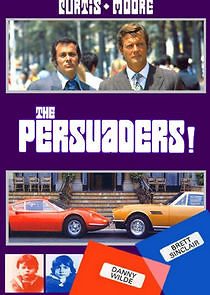
info
|
TV Show:
The Persuaders
( 1971 )
English Lord Brett Sinclair and American Danny Wilde are both wealthy playboys; they are teamed together by Judge Fulton to investigate crimes which the police can't solve.
|
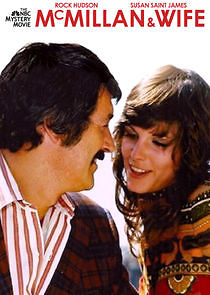
info
|
TV Show:
McMillan & Wife
( 1971 )
San Francisco Police Commissioner Stewart McMillan's duties require him to intervene personally in police cases when circumstances warrant. By good fortune, his wife Sally is something of a genius. They have a shrewd housekeeper named Mildred, who is as often as not at odds with her slightly distraught sister Agatha. Commissioner McMillan is aided by the saturnine but enthusiastic Sgt. Enright.
|
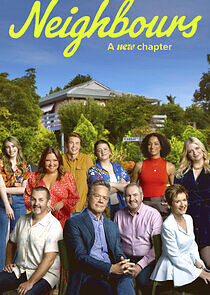
info
|
TV Show:
Neighbours
( 1985 )
The continuation of the long-running daily drama series—about the lives, loves, and challenges of the residents on Ramsay Street in Erinsborough, Australia, a fictional suburb of Melbourne.
|
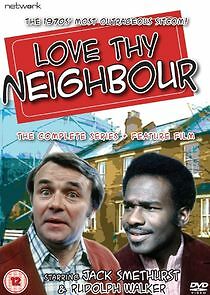
info
|
TV Show:
Love Thy Neighbour
( 1972 )
Love Thy Neighbour is a British sitcom, which was transmitted from 13 April 1972 until 22 January 1976, spanning seven series and fifty-four episodes. The series was produced by Thames Television for the ITV network. A hugely popular sitcom highlighting and examining the clashes of class, and colour, in early-1970s Britain. Eddie Booth is a passionately left-wing, somewhat racist bigot, so when his new neighbours turn out to be black, he's far from pleased. But even worse than that - they vote Conservative. Understandably, Eddie puts Bill's back up right from the off. Despite their differences, however, each man is far more alike the other than either would admit, and a begrudging respect develops between them. After all, there is a common enemy: their wives!
|
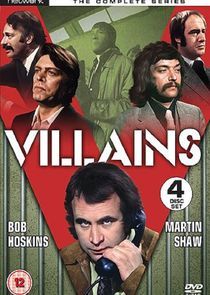
info
|
TV Show:
Villains
( 1972 )
Villains is a crime drama about a group of criminals who break into a bank vault via a ladies public toilet. Each episode tells the stories of the men, their accomplices, their women and the audacious heist itself.
|
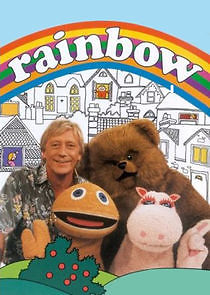
info
|
TV Show:
Rainbow
( 1972 )
Rainbow is a British children's television series, created by Pamela Lonsdale, which ran between five times weekly, twice weekly and once weekly at 12:10 on Tuesdays and Fridays on the ITV network, from 1 September 1972 to 31 December 1992. After more than 1000 episodes, the series came to an abrupt end when Thames Television lost its ITV franchise at the end of 1992. Since then, it has gained cult status and continues to get frequent mentions on radio and television.
|
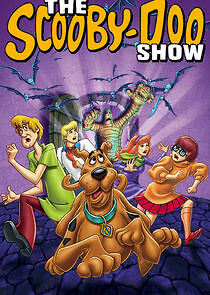
info
|
TV Show:
The Scooby-Doo Show
( 1976 )
The Scooby Doo Show premiered on ABC in September 1976 as part of The Scooby-Doo-Dynomutt Hour, in which new episodes of Scooby Doo shared an hour with a superhero dog named Dynomutt. It was a revamped version of Scooby Doo, Where Are You? which started on CBS in 1969.
|
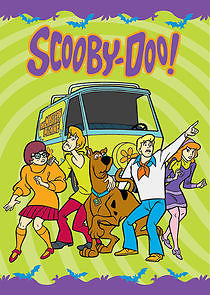
info
|
TV Show:
Scooby Doo, Where Are You!
( 1969 )
Brainiac Velma, jock Fred, fashionista Daphne, hippie Shaggy, and Shaggy's highstrung, talking Great Dane, Scooby-Doo, climb into their green van, the Mystery Machine, and hit the road in search of weird phenomena to solve. And even when Scooby and the gang aren't actively searching for them, mysteries just have a way of falling into their laps. Ruh-roh!
|
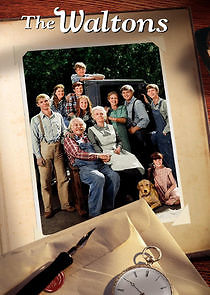
info
|
TV Show:
The Waltons
( 1972 )
Enjoy the heart-warming stories of the Waltons family, living in a rural community during the Depression and World War II. John and Olivia Walton are the proud parents of three girls and five boys: John-Boy, Jason, Mary Ellen, Erin, Ben, twins Jim-Bob & Joseph, and Elizabeth; Joseph died at birth. Grandma and Grandpa Walton (Esther and Zeb) are John's parents are also an integral part of the family.
|
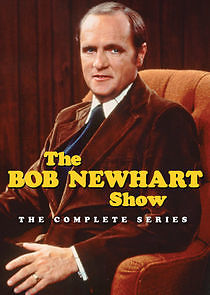
info
|
TV Show:
The Bob Newhart Show
( 1972 )
Dr. Robert Hartley is a Chicago psychologist living with his schoolteacher wife Emily. Complicating life for the serene, stammering doc is his neighbor, Howard, a flighty navigator; and Bob's coworkers, dentist Jerry and flippant receptionist Carol.
|
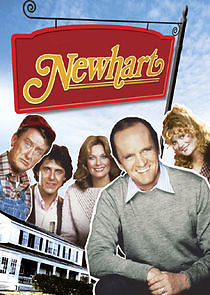
info
|
TV Show:
Newhart
( 1982 )
Bob Newhart returns to the TV as Dick Loudon, as he and his wife Joanna decide to leave life in New York City and buy a little inn in Vermont. Dick is a how-to book writer, who eventually becomes a local TV celebrity as host of "Vermont Today."
|
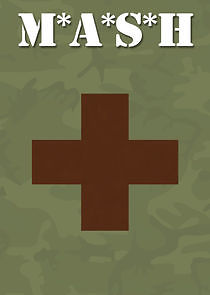
info
|
TV Show:
M*A*S*H
( 1972 )
Loosely based on the real-life M*A*S*H unit 8055, life at the 4077 revolved around the day-to-day routines of Captain "Hawkeye" Pierce, Captain "Trapper" McIntyre, Lieutenant Colonel Henry Blake, Major Margaret Houlihan, Major Franklin Burns and Corporal "Radar" O'Reilly. Through these characters, viewers traveled beyond the long hours and the horrors of the operating room to a place where friendships were forged, laughter was found and drinks were served.
|
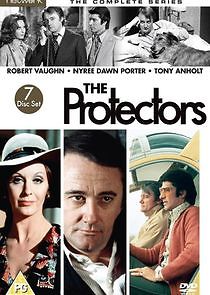
info
|
TV Show:
The Protectors
( 1972 )
Three affluent international private detectives/troubleshooters are charged with ensuring the protection of innocents. They belong to an organization called The Protectors and are based in London. Harry Rule leads the group. The Contessa lives in Italy when she isn't working with Harry; she runs her own detective agency that specializes in exposing art frauds and recovering stolen art. Paul Buchet works out of Paris, and is the group's researcher and gadget specialist.
|
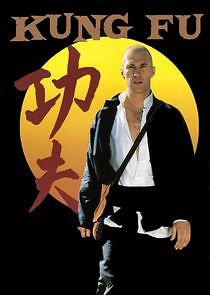
info
|
TV Show:
Kung Fu
( 1972 )
Kwai Chang Caine, the half-American Buddhist monk from China, wandering the American West as a wanted fugitive, befriends a homeless boy, foils a bounty hunter, and experiences the pain of love.
|
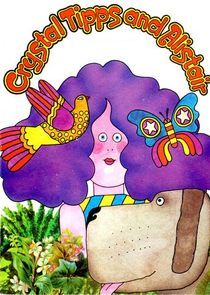
info
|
TV Show:
Crystal Tipps and Alistair
( 1972 )
British cartoon series about the adventures of a frizzy haired girl and her dog, Alistair. They also meet up with their friends Birdie and Butterfly. The stories are told without dialogue but have a musical score and Pop-Art design.
|
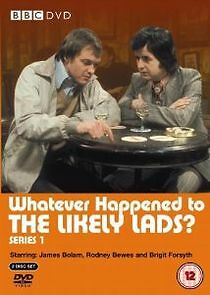
info
|
TV Show:
Whatever Happened to the Likely Lads?
( 1973 )
"Whatever Happened to the Likely Lads?" is a British sitcom which was broadcast between 9 January 1973 and 9 April 1974 on BBC1. It was the colour sequel to the mid-1960s hit The Likely LadThere were 26 episodes over two series; and a subsequent 45-minute Christmas special was aired on 24 December 1974.Since the ending of the original series, in 1966, Bob has left factory life behind for an office job, in his future father-in-law's building firm (something which makes Bob even more desperate to curry favour with Thelma and her family). But what Bob does for a living is not a major part of the show; more important is the simple fact that he is now a white-collar worker, and (at Thelma's urging) is joining badminton clubs, attending dinner parties, and – in all sorts of ways – appearing to Terry as aspiring to join the middle class. Terry sees Bob as a class traitor, and looks upon his own Army experience and solid working class ethos as giving him moral superiority.To a considerable degree, in fact, the comedy is built upon a basis of class warfare – a theme which was very familiar to British television audiences in the 1970s, a period of virtually continuous industrial strife in Britain. Terry is being left behind, a relic of the attitudes of the mid-1960s, due to his five-year absence in the Army; whereas Bob, Thelma, and Terry's sister Audrey – i.e. all the other main players in the show – have moved on, and are all to various degrees embracing more affluent, middle-class lifestyles. Terry is alone in clinging to his old beer-and-skittles Andy Capp lifestyle, as the others frequently tell him; and the tensions which this causes, between him and Bob, him and Thelma, and him and Audrey, are a main engine driving the comedy.Terry finds it particularly hard to adjust to all the changes which have occurred in the five years he's been away. As implied in the lyrics to the programme's theme song, the 1970s series plays on both lads' feelings of nostalgia for the lost days of their reckless youth. Both of them are depressed by the demolition of so many of the landmarks of their youth, though Bob, who works for a building firm, sometimes sees it as progress. Bob has also bought his own house, on a newly built estate – something else which sets him apart from his old friend.Reflecting the distinctions now separating the two young men, the opening credits show Terry amongst the older and more industrial buildings of the city, with Bob seen in modern, more attractive surroundings.
|
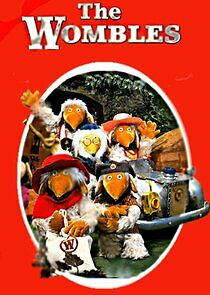
info
|
TV Show:
The Wombles
( 1973 )
The Wombles is a stop motion animated British television series made in 1973–1975. The Wombles are creatures that live underground, collecting and recycling human rubbish.
|
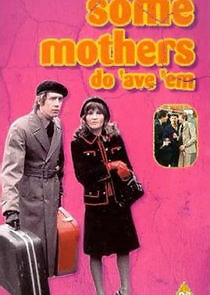
info
|
TV Show:
Some Mothers Do 'Ave 'Em
( 1973 )
Some Mothers Do 'Ave 'Em is a BBC television sitcom, created and written by Raymond Allen and starring Michael Crawford and Michele Dotrice. It was first broadcast in 1973 and ran for three series, ending in 1978. The series follows the accident-prone Frank Spencer and his tolerant wife, Betty, through Frank's various attempts to hold down a job, which frequently end in disaster. The sitcom was filmed in and around the town of Bedford in Bedfordshire. It was noted for its stuntwork, performed by Michael Crawford himself, as well as featuring various well-remembered catchphrases, that have become part of popular culture. In a 2004 poll to find Britain's Best Sitcom, Some Mothers Do 'Ave Em came 22nd.
|
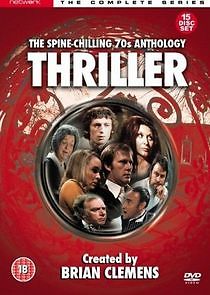
info
|
TV Show:
Thriller
( 1973 )
Each story of the anthology is a thriller of some variety, from tales of the supernatural to down-to-earth whodunits.
|
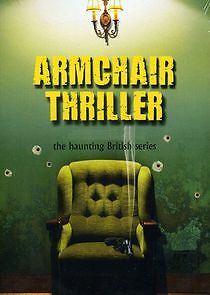
info
|
TV Show:
Armchair Thriller
( 1978 )
How do ordinary people react when confronted by extraordinary circumstances--when their mundane worlds are turned upside down by unforeseen events? How do they respond to danger, to evil, to loss? Each eerie episode probes these haunting questions while you watch from the safe distance of your own armchair.
|
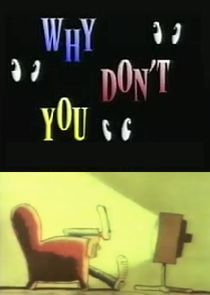
info
|
TV Show:
Why Don't You?
( 1973 )
Why Don't You? or (Why Don't You Just Switch Off Your Television Set and Go Out and Do Something Less Boring Instead?) was a BBC children's television series broadcast in 42 series between 20 August 1973 and 21 April 1995.It originally went out in the morning during the Summer school holidays and once was shown during the weekday evening children's TV slot around 4:45 to 5:45. Later it went out during the Easter and Christmas school holidays although it was also broadcast once on Saturday mornings. The format consisted of groups or "gangs" of children responding to letters from viewers who wrote into the show suggesting games, 'makes' and days out. Typically these were arts-and-crafts activities involving cutting up paper, or games and magic tricks children could learn to impress their friends.Created by producer/director Patrick Dowling at the BBC's Bristol studios, Russell T Davies was later at one time a producer and director for Why Don't You...? before going on to greater fame as writer of Queer as Folk and producer of the 2005 revival of Doctor Who. Under Davies's direction, the format of the series shifted from magazine show to drama, with plots frequently centring around harebrained young Welsh presenter Ben Slade and his increasingly elaborate inventions. Slade was one of the longest serving presenters in the show's 22-year run.
|
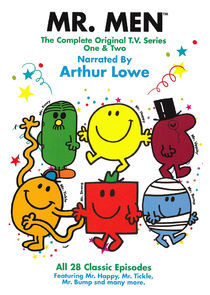
info
|
TV Show:
Mr. Men
( 1974 )
The Mr. Men series was based on the Children's books written by Roger Hargreaves. In 1974, the first Mr. Men series was broadcast by the BBC and consisted of 13 episodes. It was narrated by Arthur Lowe of Dad's Army fame.
|
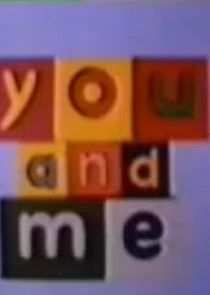
info
|
TV Show:
You and Me
( 1974 )
You and Me is a BBC television programme for pre-school children broadcast from 1974 to 1995. It aired on BBC 1 from 1974-1983 & on BBC 2 from 1983-1995. The programmes consisted of various segments intended to educate and entertain young children and included elements for early literacy and numeracy. The first episode, called "Moving house", was broadcast at 10:45 am 14 January 1974 on BBC1. The series' original intention was to teach children safety, reading and emotional well being. The show featured a mixture of human actors and puppets. Originally it featured the actor Tony Hughes as Herbert The Handyman, along with the puppet characters Mr Bits and Pieces and Purrfecta the Cat.
|
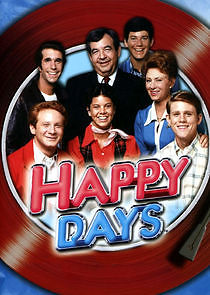
info
|
TV Show:
Happy Days
( 1974 )
Set in Milwaukee, Wisconsin in the 1950's, Happy Days revolves around Richie Cunningham and his family and friends. A "wholesome" young man, Richie is a Jefferson High School student who would do anything to get a date and he spends plenty of time with his friends at Arnold's, the local burger joint. Contrasting with his wholesome nature is Arthur Fonzarelli, best known as Fonzie, a rough-around-the-edges motorcycle riding high school dropout famous for his slicked hair, leather jacket, and the catchphrase "aaayyyy!" Fonzie is a regular around the Cunningham house, with Mrs. Cunningham doting on him and Richie turning to him for advice on how to attract girls.
|
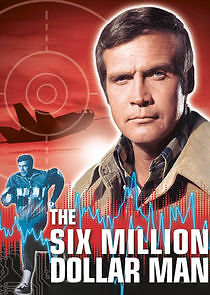
info
|
TV Show:
The Six Million Dollar Man
( 1974 )
Grievously injured in the crash of an experimental aircraft, Colonel Steve Austin's shattered body is covertly rebuilt via the miracle of modern science known as bionics. Equipped with atomic-powered limbs that make him "better, stronger, faster" than the average mortal, Austin can now run at speeds exceeding 60 miles per hour, overturn cars with ease, and spot an encroaching enemy from over a mile away. Under the watchful eye of OSI director Oscar Goldman, Steve repays his debt to the taxpayers by taking on perilous missions of a highly classified nature. Season 1 chronicles Steve Austin's amazing metamorphosis from "a man barely alive" to cyborg to patriotic superspy. Armed with futuristic abilities, Austin is dispatched to do battle with kidnappers, arms smugglers, evil scientists, political assassins, and a diabolical robot—with time enough to spare to counsel a troubled astronaut and clear his dead father's name.
|
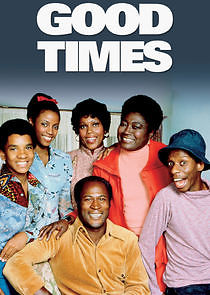
info
|
TV Show:
Good Times
( 1974 )
Money was scare, but laughs and love were abundant for Florida, her hard-working husband James, and their three kids living in the projects of South Side Chicago. From the outrageous antics of budding artist J.J., to the romantic dramas of sister Thelma and pint-sized Michael's activist causes, these parents had their hands full.
|
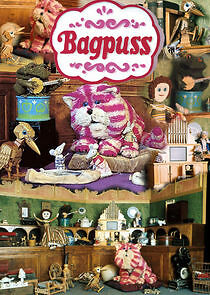
info
|
TV Show:
Bagpuss
( 1974 )
Strange as it may seem, Oliver Postgate and Peter Firmin made only 13 episodes of Bagpuss, but they've captured the imaginations of children for over a quarter of a century. Bagpuss is a cat who spends his time slumbering in a shop owned by Emily. The shop itself doesn't sell anything, and Emily seems a little young to be a shopkeeper - it is a most unusual shop, after all. Each week Emily brings Bagpuss objects to mend and repair. Bagpuss will wake up and examine them, in the company of his friends - including Madeleine the rag doll, and the mice from the Marvellous Mechanical Mouse Organ. All this happens under the watchful eye of Professor Yaffle, the carved woodpecker book end, who comments scathingly on the toys and the stories they tell. Then at some point, Bagpuss becomes very very tired, and they all go back to sleep. That's basically it, so why did this all happen? Simp...
|
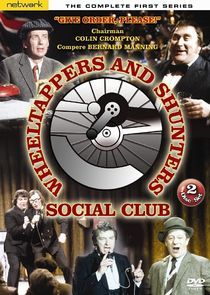
info
|
TV Show:
The Wheeltappers and Shunters Social Club
( 1974 )
Set in a fictional working men's club in the North of England, The Wheeltappers and Shunters Social Club is a variety show that featured stand-up comics and singers performing on a stage in front of a live audience.
|
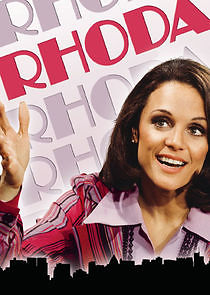
info
|
TV Show:
Rhoda
( 1974 )
In this spinoff of The Mary Tyler Moore Show, Mary's friend Rhoda moves out on her own and gets her own show.
|
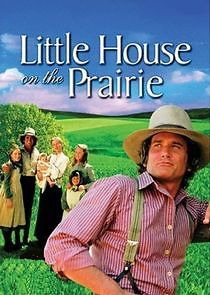
info
|
|
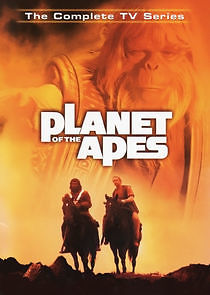
info
|
TV Show:
Planet of the Apes
( 1974 )
After their spacecraft travels through a time warp, two astronauts from 1981 crash-land back on Earth in the year 3085--a time when intelligent apes rule and humans have been reduced to servants or pets. Captured by the apes and sentenced to death, they are saved by a curious chimpanzee name Galen. But now all three are on the run, trying to keep one step ahead of the gorilla army led by General Urko, who is determined to kill the renegades.
|
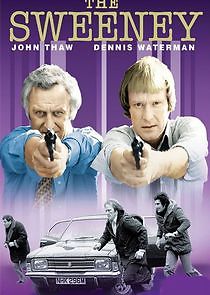
info
|
TV Show:
The Sweeney
( 1975 )
The Sweeney was one of the finest British police series of the mid 1970s. Jack Regan is a hard edged detective in the Flying Squad of London's Metropolitan police (called 'the Sweeney' from the Cockney rhyming slang 'Sweeney Todd' = 'Flying Squad"). He pursues villains by methods which are underhand, often illegal, frequently violent, and more often than not, successful.
|
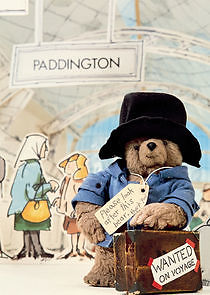
info
|
TV Show:
Paddington
( 1975 )
Paddington is a series of British animated shorts based on the Paddington Bear book series by Michael Bond produced by FilmFair. This was the first television series based on the popular children's book Paddington Bear. In the United States it was usually shown on pay television as filler in between programmes.it was also shown in Australia on the ABC In the early 1980s Its narrator was actor Michael Hordern. The series has a very distinctive art style. Paddington himself is a stop-motion animated puppet who moves within a 3-dimensional space and interacts with 2-dimensional animated drawings of the human characters, buildings, etc.
|
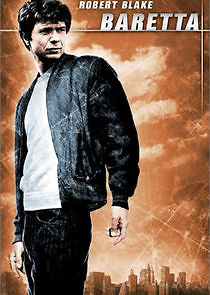
info
|
TV Show:
Baretta
( 1975 )
Baretta is an undercover cop in the Serpico mode. Like your standard TV-issue rule-bending loner cop, he butts heads with his excitable superior (veteran character actor Dana Elcar of MacGuyver and Baa Baa Black Sheep fame). He lives in the run-down King Edwards Motel with his scene-stealing pet cockatoo. With its ersatz funky score, Baretta is time-capsule '70s television. And, as Baretta was fond of saying, you can take that to the bank.
|
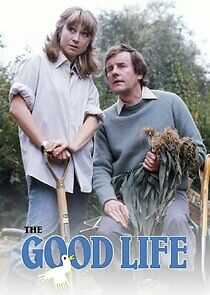
info
|
TV Show:
The Good Life
( 1975 )
Tom and Barbara Good are a middle class suburban couple who on Tom's 40th birthday decide to turn their Surbiton home into a self-sufficient allotment. They grow their own food, keep farm animals and have sold or bartered all of their electrical appliances as they have no electricity. This creates friction with their best friends and next door neighbours, Jerry and Margo Leadbetter. But even though the Goods have lowered the tone of the neighbourhood in the Leadbetter's eyes they still can't help but be best of friends.
|
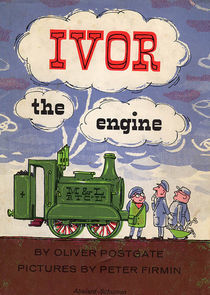
info
|
TV Show:
Ivor the Engine
( 1975 )
The story of a sometimes disobedient small green locomotive who worked for the Merioneth and Llantisilly Rail Traction Company Limited, although he dreamed of singing with the Grumbley and District Choral Society. In time he became first bass of the choir and transported the members from place to place.His driver was Edwin Jones, known as Jones the Steam, who enjoyed fishing and daydreaming. Ivor's other friends included stationmaster Dai Station, portly choirmaster Evans the Song, fellow chorister Idris the Dragon, and fairground owner Morgan the Roundabout. Mr Morgan gave Ivor some pipes from his steam calliope to allow him to sing in the choir.
|
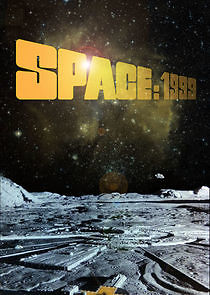
info
|
TV Show:
Space: 1999
( 1975 )
It's 1999 and Moonbase Alpha has been built on the Moon to safeguard the nuclear waste shipped from Earth. On September 13, 1999, disaster strikes and the nuclear waste explodes, causing a chain reaction that hurls the Moon out of Earth's orbit and into deep space.
|
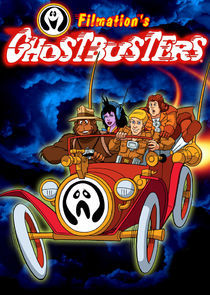
info
|
TV Show:
Ghostbusters
( 1986 )
Ghostbusters (later called Filmation's Ghostbusters) is a 1986 animated television seriescreated by Filmation and distributed by Tribune Entertainment, based on Filmation's 1975 live-action television show The Ghost Busters. It is not to be confused with Columbia Pictures' 1984 film Ghostbusters or that film's subsequent animated television show The Real Ghostbusters.Jake Kong, Eddie Spencer and Tracy the Gorilla are The Ghost Busters. Jake and Eddie Jr are the sons of the original Ghost Busters from the live action series of the same name; Tracy worked with their fathers.Their headquarters, termed Ghost Command, is located in a haunted mansion nestled between a number of tall skyscrapers (which resemble the World Trade Center's Twin Towers in New York City) They are supported by a number of secondary characters including Ansa-Bone, a talking skull phone; Skelevision, a talking skeleton television; Belfrey, a pink talking bat; and Ghost Buggy, their talking ghost car. They occasionally enlist the aid of Futura, a time travelling Ghostbuster from the future, and Jessica, a local TV news reporter.Together, they have dedicated themselves to ridding the world of the evil ghost wizard Prime Evil and his cast of henchmen. Prime Evil's headquarters, termed Hauntquarters (which resembles the British Houses of Parliament complete with a Big Ben-esque clock tower), is located in The Fifth Dimension. In a typical episode, Prime Evil uses his magical powers to open up a wormhole to enable one or more of his henchmen to complete a particular scheme that serves to help him take over the world.
|
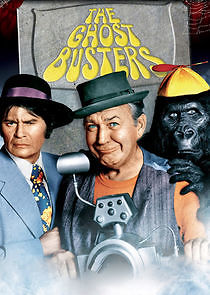
info
|
TV Show:
The Ghost Busters
( 1975 )
The Ghost Busters was a live-action children's situation comedy that ran in 1975, about a team of bumbling detectives who would investigate ghostly occurrences. Fifteen episodes were produced. The show reunited Forrest Tucker and Larry Storch in roles similar to their characters in F Troop. The series was unrelated to the 1984 film Ghostbusters (though Columbia Picturesdid pay Filmation for a license to use the name). Like the film, the series spawned its own animated sequel in 1986.Spencer, Tracy, and Kong billed themselves as "The Ghost Busters", bumbling paranormal detectives. Kong (Tucker) was the leader of the trio with Spencer (Storch) as his partner, and Tracy (a gorilla, played by Burns) as their assistant who also drove their barely-functional jalopy. Their headquarters was situated in a run down office building in an unspecified city (Spencer's name on the door was misspelled "Spenser" while the opening credits spelled his name "Spencer"). Outside of normal office equipment, plus a large armoire on which Tracy hung numerous hats including his trademark beanie, the office itself was also dilapidated, with peeling wallpaper and a pay phone near the door as the Ghost Busters' only means of communicating with prospective clients.
|
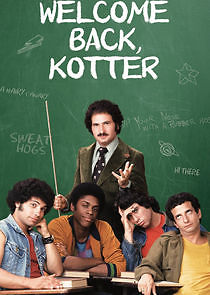
info
|
TV Show:
Welcome Back, Kotter
( 1975 )
A compassionate teacher returns to his inner city high school of his youth to teach a new generation of trouble making kids.
|
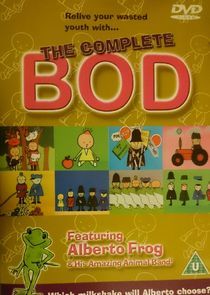
info
|
TV Show:
Bod
( 1975 )
Bod was a BBC1 children's television programme first shown in 1975, with thirteen episodes, based on four original Bod books by Joanne and Michael Cole. It was an animated cartoon series narrated by John Le Mesurier & Maggie Henderson with music by Derek Griffiths and produced by David Yates. The four books were published in 1965 in the United Kingdom and later in the United States and France. They were: Bod's Apple, Bod's Present, Bod's Dream and Bod and the Cherry Tree. The French version of Bod's Apple was called La Pomme de Gus.
|
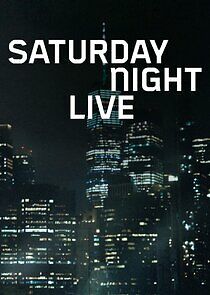
info
|
TV Show:
Saturday Night Live
( 1975 )
Saturday Night Live is an Emmy Award-winning late-night comedy showcase.Since its inception in 1975, "SNL" has launched the careers of many of the brightest comedy performers of their generation. As The New York Times noted on the occasion of the show's Emmy-winning 25th Anniversary special in 1999, "in defiance of both time and show business convention, 'SNL' is still the most pervasive influence on the art of comedy in contemporary culture." At the close of the century, "Saturday Night Live" placed seventh on Entertainment Weekly's list of the Top 100 Entertainers of the past fifty years.
|
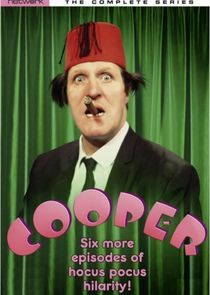
info
|
TV Show:
Cooper
( 1975 )
Tommy Cooper, the master comedian and eternally frustrated magician, performs some of his classic sketches and routines, along with various guests.
|
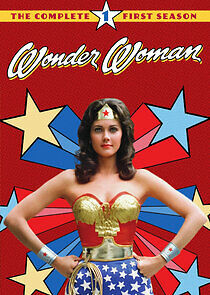
info
|
TV Show:
Wonder Woman
( 1975 )
A colorful spin on Charles Moulton's comic about the Amazon goddess battling evil during World War II and later, in more recent times, against new enemies. The change came after the series jumped from ABC to CBS, with the heroine joining a covert military agency. Wonder Woman began as two TV-movies (the first in 1974 with Cathy Lee Crosby) and several specials before finding a regular prime-time home in late 1976. Debra Winger appeared occasionally as Drusilla, Wonder Woman's kid sister.
|
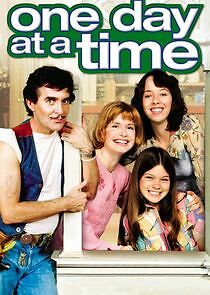
info
|
TV Show:
One Day at a Time
( 1975 )
The struggles of a 1970s single mother raising two teenage daughters gets its first TV slot with this instant hit sitcom.
|
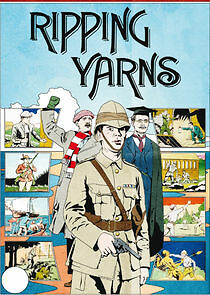
info
|
TV Show:
Ripping Yarns
( 1976 )
Post-Python comedy from the Michael Palin and Terry Jones partnership, with Palin as the lead in a range of wacky stories that parody tales of derring-do and northern life.
|
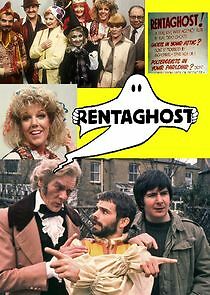
info
|
TV Show:
Rentaghost
( 1976 )
Harold and Ethel Meaker live in South Ealing, West London and run Rentaghost where they rent ghosts out to the public. Over the years many ghosts came and went but the main Rentaghost crew consisted of Timothy Claypole; a jester at the court of Queen Mattilda, Hazel the McWitch; the ghost of a Scottish witch who was recruited during the rentapotion venture, Nadia Popov; a Dutch ghost who still suffered from hayfever and had a habit of 'popping off' whenever she saw a flower, Fred Mumford; founder of Rentaghost after becoming a ghost in a shipping accident, Hubert Davenport; a distinguished Victorian gentleman. The Meaker's next door neighbours, Rose and Arthur Perkins, were convinced that the Meaker's were a pair of nutters and hired a private detective then tried to get a psychiatrist to convince them that they needed treatment...
|
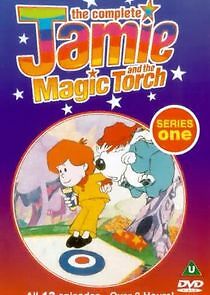
info
|
TV Show:
Jamie and the Magic Torch
( 1976 )
When Jamie shines his Magic Torch on the floor of his bedroom a hole appears, leading Jamie and Wordsworth the sheepdog to the psychedelic fantasy world of Cuckooland.
|
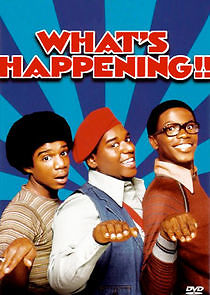
info
|
TV Show:
What's Happening!!
( 1976 )
The misadventures of three black teens, Roger, Dwayne and Rerun, in 1970s L.A.
|
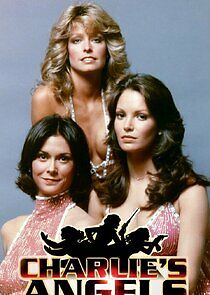
info
|
TV Show:
Charlie's Angels
( 1976 )
Once upon a time, Jill, Sabrina and Kelly were police officers whose skills were being wasted in menial duties such as answering phones and filing. A mysterious millionaire named Charles Townsend took them away from all that by opening his own private investigation agency and hiring these gorgeous ladies as his operatives with John Bosley acting as their assistant and liaison.
|
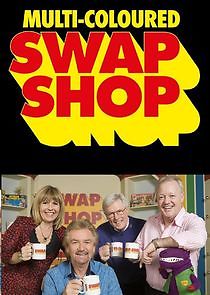
info
|
TV Show:
Multi-Coloured Swap Shop
( 1976 )
Multi-Coloured Swap Shop, more commonly known simply as Swap Shop, was a UK children's television programme. It was broadcast on Saturday mornings on BBC1 for 146 episodes in six series between 1976 and 1982. It was ground-breaking in many ways: by being live, sometimes up to three hours in length, and using the phone-in format extensively for the first time on TV.Its creation was thought by many to be the BBC's response to the growing success of ITV's Tiswas.
|
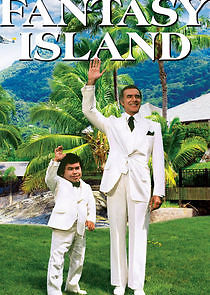
info
|
TV Show:
Fantasy Island
( 1977 )
Smiles everyone, Smiles! So began this long-running (7 season) series which was one of the ABC Network's anthology/guest-cast series (along with The Love Boat) that proved wildly popular. Each week two guests came to Fantasy Island to get their wish/fantasy fulfilled. Their mysterious host, the debonair and suave white-suited Mr. Roarke, would do the sometimes impossible and grant them their wishes...but there was always some twist to the fantasy, letting the guest learn something about themselves or get something they weren't expecting. Best remembered for the presence of Herve Villechaize as the diminutive "Tattoo" and his cry of "De plane! De plane!" the show proved popular enough to go the distance and then spawn a brief revival/remake in the 1990s. A remake, Fantasy Island (1998) in the late 1990s was not as successful as its predecessor.
|
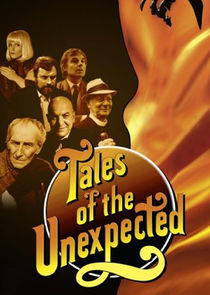
info
|
TV Show:
Tales of the Unexpected
( 1977 )
Anthology series presenting stories of suspense, mystery and science-fiction, usually with some sort of twist ending.
|
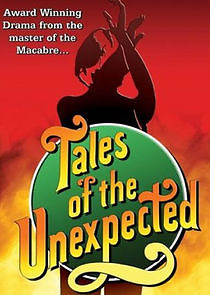
info
|
TV Show:
Tales of the Unexpected
( 1979 )
Tales of the Unexpected is a British television series originally aired between 1979 and 1988, made by Anglia Television for ITV. The series was an anthology of different tales. Initially episodes were based on the short stories collected in the books Tales of the Unexpected, Kiss Kiss and Someone Like You by Roald Dahl. The stories were sometimes sinister, sometimes wryly comedic, and usually had a twist ending. The upbeat theme music for the series was written by the prolific film and television composer Ron Grainer.
|
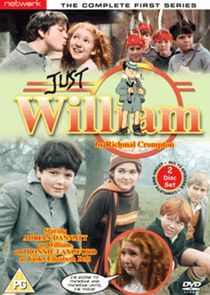
info
|
TV Show:
Just William
( 1977 )
The story concentrate of an English boy. No matter what trouble his
elders, and -worse- the insufferable 'good girl' Violet Elizabeth Bott
who manages to enforce her presence upon them, take to tell them what to
do, when and where, William, his best friend Ginger and the whole gang
of village rascals make sure the saying "boys will be boys" proves true
every single mischievous time, even if it takes all their courage and
lying ingenuity.
|
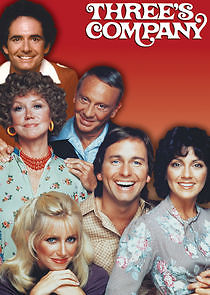
info
|
TV Show:
Three's Company
( 1977 )
Three's Company was a groundbreaking comedy series that tripped and jiggled through a world of slapstick pratfalls and some of the most scandalously titillating comedy America had ever seen, and hasn't seen since.
|
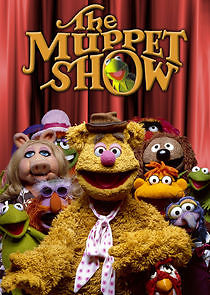
info
|
TV Show:
The Muppet Show
( 1976 )
The Muppet Show is a half-hour variety show in which Kermit the Frog and the Muppets put on a weekly musical/comedy revue at the Muppet Theater. Unfortunately for them, things never quite go according to plan, for the Muppets or their weekly guest stars.
|
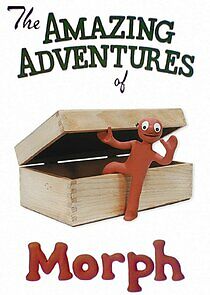
info
|
TV Show:
The Amazing Adventures of Morph
( 1980 )
The Amazing Adventures of Morph is a British stop-motion clay animation television show created by Aardman Animations which ran from 1980 to 1981. It featured the character Morph and his cream-coloured twin Chas.
|
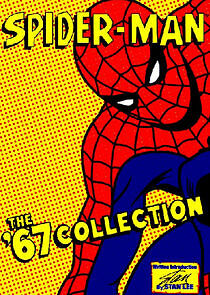
info
|
TV Show:
Spider-Man
( 1967 )
First airing on the ABC television network in 1967, the series revolves around the scientific-minded teenager Peter Parker who, after being bitten by a radioactive spider, develops amazing strength and spider-like powers. He decides to become a crime-fighting, costumed superhero; all the while dealing with his personal problems and the insecurities resulting from being a teenager.
|
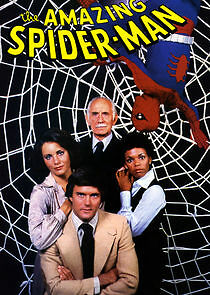
info
|
TV Show:
The Amazing Spider-Man
( 1977 )
With the powers given by the bite of a radioactive spider, a young man fights crime as a wall-crawling superhero.
|
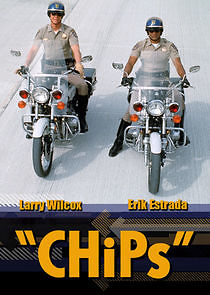
info
|
TV Show:
CHiPs
( 1977 )
Where the rubber meets the road and the bad guys meet the badge -- that's where you'll find California Highway Patrol motorcycle officers Jon and Ponch. Set in the sun-drenched sprawl of Los Angeles, CHiPs combines action, heroics and fun.
|
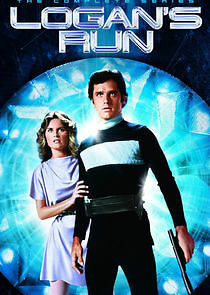
info
|
TV Show:
Logan's Run
( 1977 )
Logan's Run is a spin-off from the 1976 film of the same name. The series depicted Logan and Jessica-pursued by Francis traveling in a futuristic hovercraft-like vehicle on a cross-country trek to Sanctuary in a post-apocalyptic America. The domed city was seen only in the pilot and two other episodes, using recycled footage from the film. In a change from the book and film, the television series had the city run by a cabal of elderly citizens; Francis has been promised a life beyond thirty as a city elder if he can bring back the fugitives. Logan and Jessica were joined on their journey by an android named Rem.
|
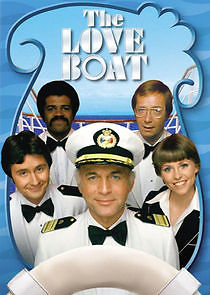
info
|
TV Show:
The Love Boat
( 1977 )
Each week, passengers looking for romance board the beautiful Pacific Princess cruise ship as it sails to tropical and exotic lands. Captain Stubing, Julie, Gopher, Dr. Adam, and Isaac help them to get the most out of their trips and do their best to help them fall in love.
|
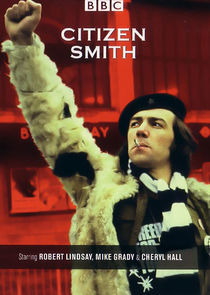
info
|
TV Show:
Citizen Smith
( 1977 )
Citizen Smith was a British television sitcom written by John Sullivan which was broadcast from April 12, 1977 - December 31, 1980 on BBC 1.Citizen Smith starred Robert Lindsay as "Wolfie" Smith, a young Marxist "urban guerrilla" in Tooting, South London, who is attempting to emulate his hero Che Guevara. Wolfie is a reference to the Irish revolutionary Wolfe Tone who used the pseudonym Citizen Smith in order to evade capture by the British. Wolfie is the self-proclaimed leader of the revolutionary Tooting Popular Front (the TPF, merely a small bunch of his friends), the goals of which are "Power to the People" and "Freedom for Tooting". In reality he is an unemployed slacker and petty criminal whose plans fall through due to apathy, ineptitude and inexperience.
|
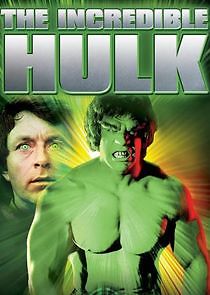
info
|
TV Show:
The Incredible Hulk
( 1977 )
David Banner is a research scientist trying to find a way to tap into the hidden strength that all humans possess. Then, one night in his labratory, an experiment went wrong, causing him to be overexposed to gamma radiation. Now, whenever angered or distressed, the mild-mannered scientist finds himself transforming into a powerful seven-foot green creature known as The Incredible Hulk. The Hulk is guided by David's personality, dealing with whatever distresses David. But unfortunately, David has no control over the creature's actions. Nor can he remember what he had done during his Hulkish states. He travels around the country in search of a cure, while taking various odd jobs under different aliases.
|
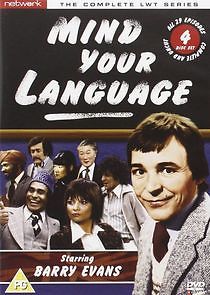
info
|
TV Show:
Mind Your Language
( 1977 )
The series focuses on adult students in a London school. The classes take place in the early evening, and are taught by Mr. Brown, though on occasion other individuals take over the class if he is not available. The class consists of foreigners with varying degrees of English proficiency. The humour of the show is derived from the students misunderstanding English words or terms, and plays up to the cultural stereotype of their individual nation of origin.
|
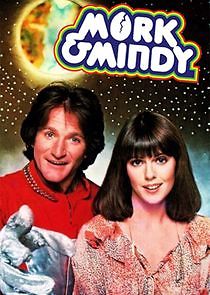
info
|
TV Show:
Mork & Mindy
( 1978 )
Mork & Mindy is a spin-off from an episode of Happy Days seen in February 1978, in which an alien from the planet Ork lands on Earth and attempts to kidnap Richie. Mork is a misfit on his own planet because of his sense of humor, so the humorless Orkans send him off to study Earthlings, whose 'crazy' customs they had never been able to understand. Mork lands, in a giant eggshell, near Boulder, Colorado and is befriended by pretty Mindy McConnell, a clerk at a music store run by her father. Mork looks human, but his strange mixture of Orkan and Earthling customs leads most people to think of him as a nut.
|
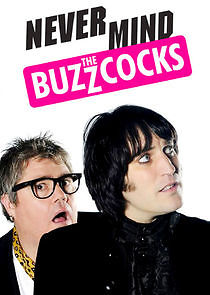
info
|
TV Show:
Never Mind the Buzzcocks
( 1996 )
Irreverent pop quiz, with guest competitors and regular captains from the worlds of music, TV and comedy lining up in two teams.
|
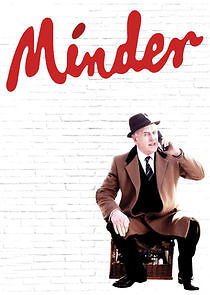
info
|
TV Show:
Minder
( 1979 )
This comedy drama series featured Terry McCann, a former boxer with a conviction for G.B.H., and Arthur Daley, a second-hand car dealer with an eye for a nice little earner. Alongside his many business ventures, Arthur would regularly hire Terry out as a minder or bodyguard.
|
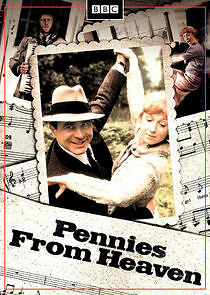
info
|
TV Show:
Pennies from Heaven
( 1978 )
Arthur Parker is a sheet music salesman in the England of the nineteen thirties. He is also a romantic dreamer who finds his own personal reality in the lyrics of the songs which he hawks from town to town.
|
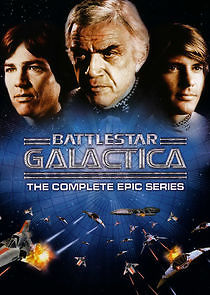
info
|
TV Show:
Battlestar Galactica
( 1978 )
When the 12 Colonies of Man are wiped out by a cybernetic race called the Cylons, Commander Adama (Lorne Greene) and the crew of the battlestar Galactica lead a ragtag fleet of human survivors in search of a "mythical planet" called Earth.
|
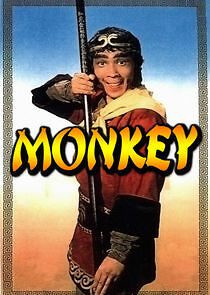
info
|
TV Show:
Monkey
( 1978 )
Monkey is based on the 16th century Chinese story "Hsi Yu Chi" ("Journey To The West"). It tells the story of the Buddhist priest Tripitaka, and his three disciples Monkey, Pigsy, and Sandy, as they travel from China to India to fetch the Buddhist scriptures. They have been sent by Buddha, and getting these scriptures will bring peace to the people of the world. Dubbed into English and shown in November 16, 1979 on UK and later Australian television, it proved to be quite popular.
|
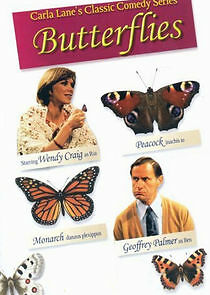
info
|
TV Show:
Butterflies
( 1978 )
Butterflies was a British sitcom series broadcast on BBC2 from 10 November 1978 – 19 October 1983. The show starred Wendy Craig as frustrated 'stay at home' housewife, Ria Parkinson and Geoffrey Palmer as her reserved dentist husband, Ben.
|
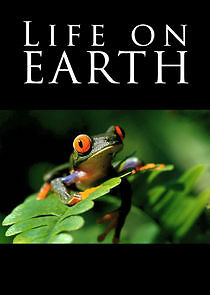
info
|
TV Show:
Life on Earth
( 1979 )
Life on Earth is a television natural history series made by the BBC in association with Warner Bros. and Reiner Moritz Productions. It was transmitted in the UK from 16 January 1979.
|
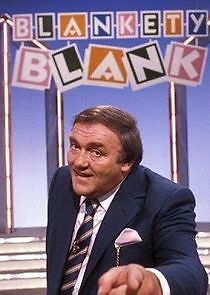
info
|
TV Show:
Blankety Blank
( 1979 )
Blankety Blank was a British comedy game show based on the 1977–79 Australian game show Blankety Blanks. The British version ran from 18 January 1979 to 12 March 1990 on BBC One, hosted first by Terry Wogan from 1979 until 1983 followed by Les Dawson from 1984 until 1990. Regular members of the celebrity panel on this version included Kenny Everett, Lorraine Chase, Gareth Hunt, Gary Davies and Cheryl Baker. A revival hosted by Paul O'Grady (as Lily Savage) was produced by the BBC from 26 December 1997 to 28 December 1999, followed by ITV from 7 January 2001 to 10 August 2002. Two contestants competed. The contestants were always a man and a woman or two women; at no point did two men compete head-to-head. The object was to match the answers of as many of the six celebrity panellists as possible on fill-in-the-blank statements.
|
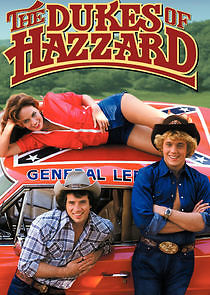
info
|
TV Show:
The Dukes of Hazzard
( 1979 )
Cousins Bo and Luke Duke and their car "General Lee", assisted by Cousin Daisy and Uncle Jesse, have a running battle with the authorities of Hazzard County (Boss Hogg and Sheriff Coltrane), plus a string of ne'er-do-wells often backed by the scheming Hogg.
|
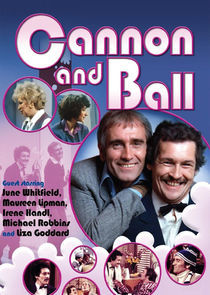
info
|
TV Show:
Cannon and Ball
( 1979 )
Cannon and Ball was a successful comedy varitey show on ITV featuring the double act of Bobby Ball and Tommy Cannon. The series was Cannon & Ball's first regular television series, filmed by LWT and lasted nine years until October 1988.
|
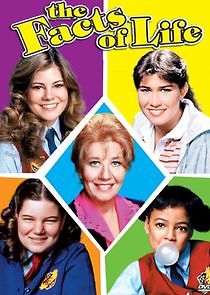
info
|
TV Show:
The Facts of Life
( 1979 )
A group of girls attending a boarding school experience the joys and the trials of adolescence under the guiding hand of housemother Edna Garrett. Later in the series, Mrs. Garrett is promoted to school dietician, and four of the girls move into new quarters above the cafeteria. Eventually she leaves the school and opens her own business, with help from her girls.
|
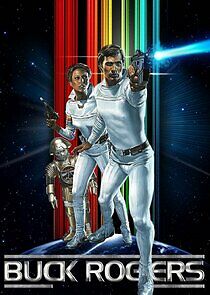
info
|
TV Show:
Buck Rogers in the 25th Century
( 1979 )
Blast off with every groundbreaking episode of the action-packed sci-fi adventure, Buck Rogers in the 25th Century! Join legendary intergalactic crimefighters William "Buck" Rogers and Colonel Wilma Deering as they lead the crew of the starship Searcher against a galaxy of evil from the past, present and faraway future.
|
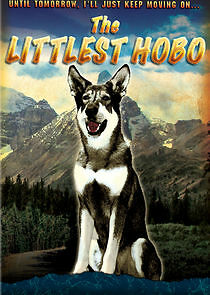
info
|
TV Show:
The Littlest Hobo
( 1979 )
London is an extremely intelligent, wandering German shepherd who walks into a different place in each episode of this long-running television series, and comes upon people down on their luck or in trouble. London always befriends and helps the struggling person or persons. Then, when his job is done at episode's end, London declines to be the pet of the people he has helped and departs to continue his cross-country drifting.
|
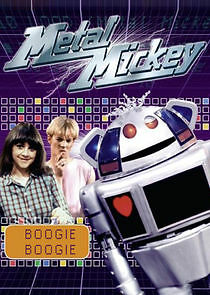
info
|
TV Show:
Metal Mickey
( 1980 )
The series was set in the home of an ordinary British family, whose youngest child was a science boffin, who had created Metal Mickey to help around the home. The family consisted of a mother and father, three children and a grandmother.
|
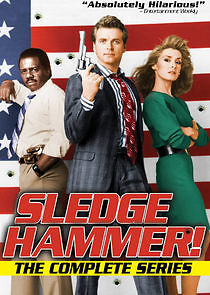
info
|
TV Show:
Sledge Hammer!
( 1986 )
Meet Inspector Sledge Hammer, a new kind of hero who makes Rambo look like Pee Wee Herman. Sledge is the trigger-happy lawman whose hatred of criminal scum and yogurt eatin' creeps was matched only by his love of excessive force and a .44 Magnum. Over the next two seasons, this hilariously deranged lampoon of Dirty Harry and plenty of other targets became one of the most notorious series in television history and launched a rabid cult of fans that grows to this day.
|
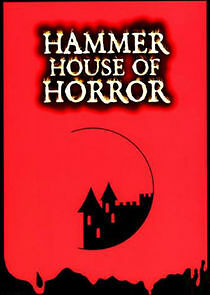
info
|
TV Show:
Hammer House of Horror
( 1980 )
Hammer House of Horror is a British television series made in 1980. An anthology series created by Hammer Films in association with Cinema Arts International and ITC Entertainment, it consists of thirteen 51-minute episodes, originally broadcast on ITV. Each self-contained episode features a different kind of horror. These vary from witches, werewolves and ghosts to devil-worship and voodoo, but also include non-supernatural horror themes such as cannibalism, confinement and serial killers.
|

info
|
TV Show:
King Rollo
( 1980 )
King Rollo was a children's character created by David McKee in 1979, starring in a series of books, animations (narrated by Ray Brooks), and a comic strip in the magazine Buttons. In all, thirteen episodes of the animation were produced in 1980 (shown in two halves), by McKee's own King Rollo Films, and originally shown as part of the pre-school 'See-Saw' strand. The central character of the stories was Rollo himself, a child-like King who was always in need of advice and assistance from his friends. Among these were The Magician (a father figure) Cook (the king's cook, a mother figure, who was arguably the real ruler of the kingdom); his neighbour, Queen Gwen; King Frank; and perhaps most importantly, Rollo's cat, Hamlet, who was generally portrayed as wiser than Rollo himself. The animations used the same distinctive colourful cut-out paper look as McKee's other works, such as Mr Benn, and one memorable aspect was that the characters' legs would rotate outwards when walking until they were at right-angles at the sides of their body.
|
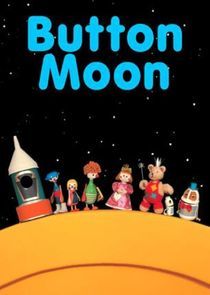
info
|
TV Show:
Button Moon
( 1980 )
Button Moon was a popular children's television programme broadcast in the United Kingdom in the 1980s on the ITV Network. Thames Television produced each episode which lasted ten minutes and featured the adventures of Mr. Spoon who, in each episode, would travel to Button Moon in his homemade rocket-ship. All of the characters within the show were based on kitchen utensils, as well as many of the props. Once on Button Moon (which hung in "blanket sky") they would have an adventure, and look through Mr. Spoon's telescope at someone else such as the Hare and the Tortoise, before heading back to their home on 'Junk Planet'. Episodes would also include Mr. Spoon's wife, "Mrs. Spoon", their daughter, "Tina Tea-Spoon" and her friend "Eggbert". The series ended in 1988 after 91 episodes.
|
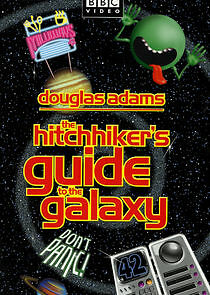
info
|
TV Show:
The Hitchhiker's Guide to the Galaxy
( 1981 )
The Hitchhiker's Guide to the Galaxy was a BBC television adaptation of Douglas Adams's The Hitchhiker's Guide to the Galaxy broadcast in January and February 1981 on UK television station BBC Two. The adaptation follows the original radio series in 1978 and 1980, the first novel and double LP, in 1979, and the stage shows, in 1979 and 1980, making it the fifth iteration of the guide.
|
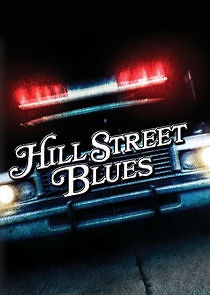
info
|
TV Show:
Hill Street Blues
( 1981 )
The lives and work of the staff of an inner city police precinct.
|
|


girlfreddy : It was awesome!!!!